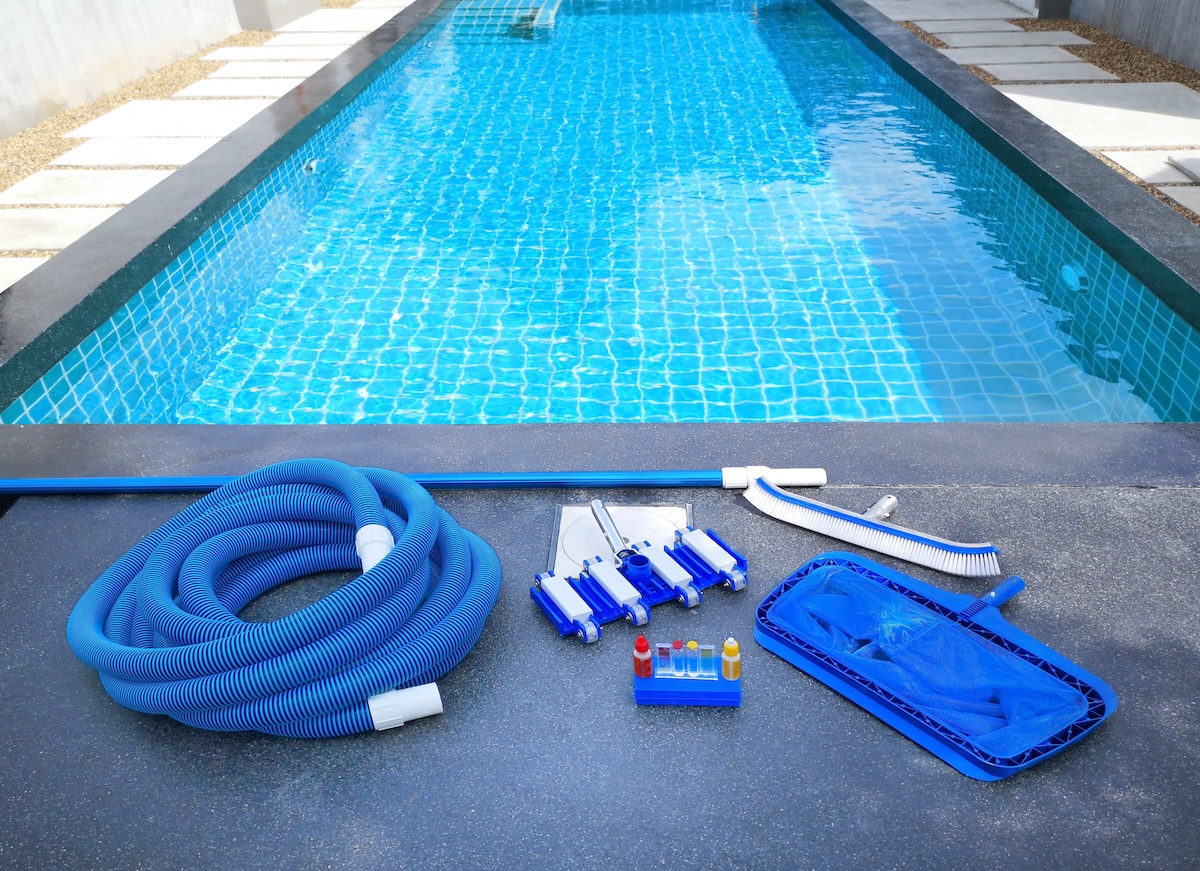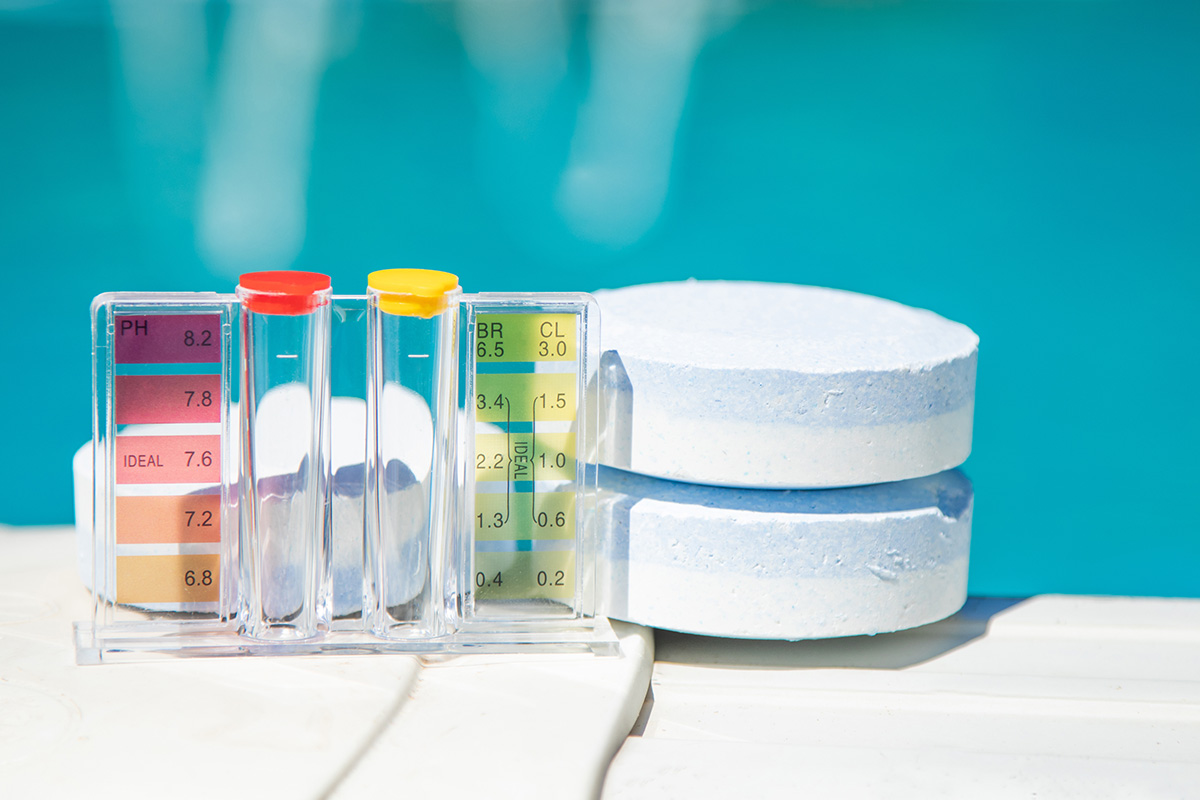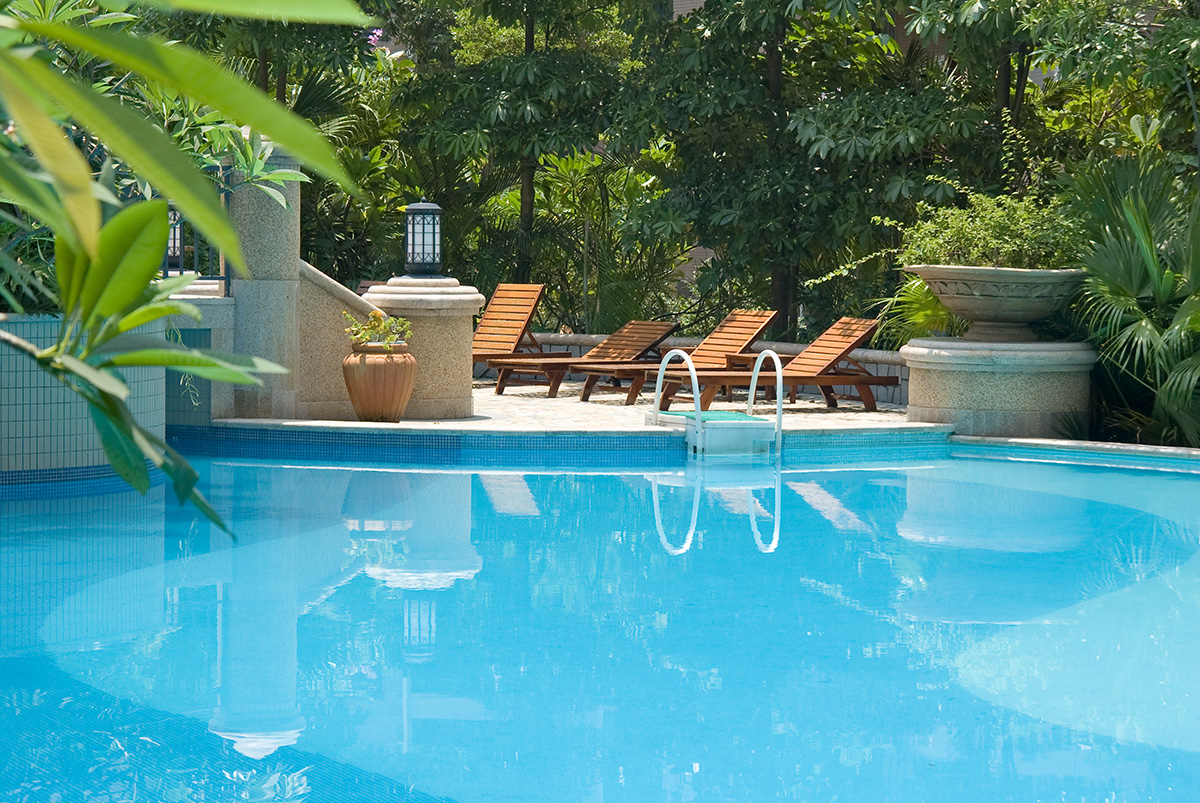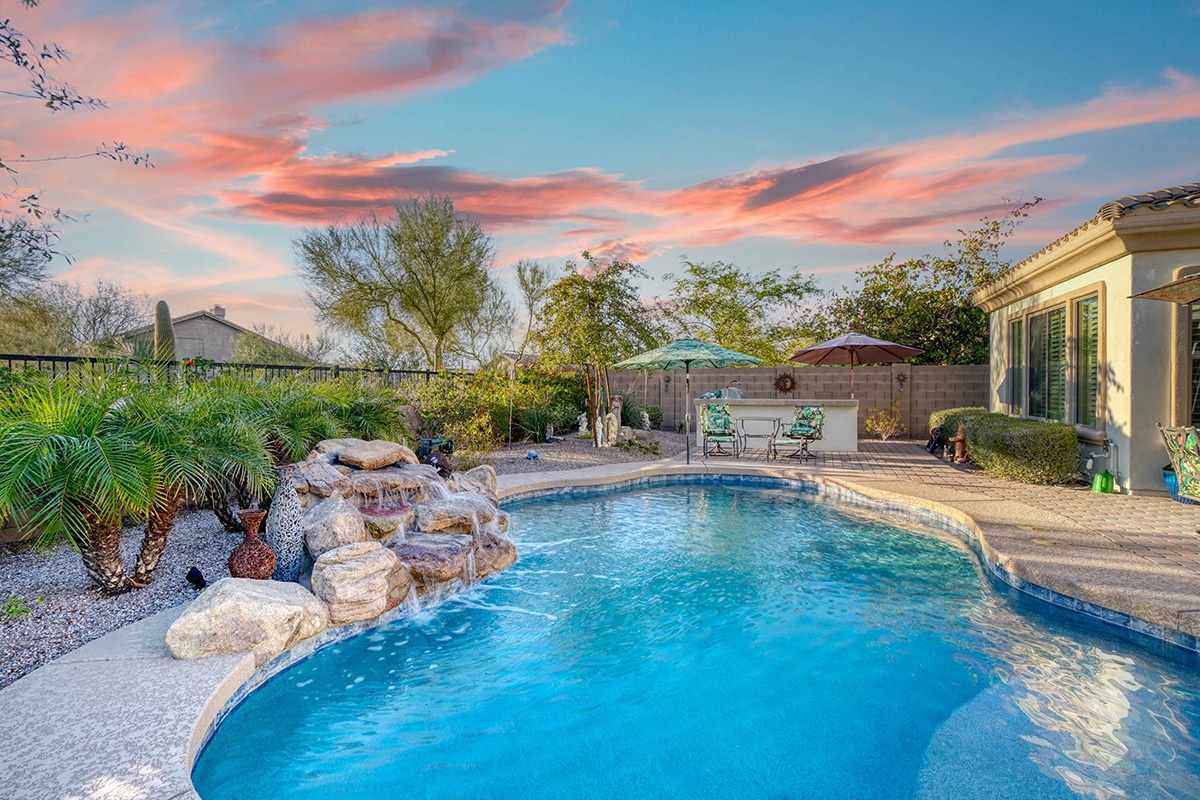Swimming pool maintenance is essential to keeping the water safe, clear, and inviting. While the general recommendation for pool cleaning is once a week, the specific frequency depends on several factors, including whether the pool is residential or commercial, its location, and environmental conditions. Commercial pools, especially those in hotels, often require more frequent maintenance due to higher usage. Additionally, pools in desert climates like Las Vegas may need extra attention because of dust, debris, and high evaporation rates. Proper maintenance ensures the longevity of pool equipment, enhances swimmer experience, and meets health and safety standards.
Residential Pool Cleaning Frequency
For homeowners, maintaining a clean and well-balanced pool is crucial for both aesthetics and safety. A general weekly cleaning schedule is usually sufficient to keep the water in optimal condition, but certain factors may require more frequent maintenance. Regular cleaning prevents the buildup of algae, bacteria, and debris that could pose health risks or damage pool surfaces and equipment.

Weekly Pool Maintenance Routine
A standard weekly cleaning routine for residential pools involves multiple steps to ensure water clarity and sanitation. Skimming the surface for leaves, insects, and other debris is essential to prevent organic matter from decomposing in the water. This should be complemented by vacuuming the pool floor, especially in deeper areas where debris tends to settle. Brushing the walls and tiles prevents algae growth, which can quickly spread if left unchecked.
Maintaining chemical balance is one of the most critical aspects of pool care. Homeowners should test chlorine, pH, alkalinity, and calcium hardness levels at least once a week. If these levels are off, the water can become cloudy, develop an unpleasant odor, or even lead to skin irritation for swimmers. Additionally, emptying skimmer and pump baskets prevents blockages that can reduce water circulation and filtration efficiency. Regular inspection of pool filters, whether sand, cartridge, or diatomaceous earth (DE), is also necessary to ensure optimal performance.
Factors That Affect Residential Pool Cleaning Needs
While weekly maintenance is a good rule of thumb, some pools require more frequent cleaning due to external factors. Pools that are frequently used by multiple swimmers accumulate contaminants faster, requiring additional chemical checks and debris removal. Heavy rain, strong winds, and high pollen levels can introduce dirt, dust, and organic matter into the water, necessitating extra vacuuming and chemical balancing.
The pool’s location also plays a significant role in its maintenance needs. Pools surrounded by trees and shrubs tend to collect more leaves and debris, increasing skimming and filtration demands. Pools in hotter climates, where high temperatures and direct sunlight contribute to faster chlorine evaporation, often require chemical adjustments more frequently to maintain proper disinfection levels. If pets regularly enter the pool, their fur and natural oils can place additional strain on the filtration system, making frequent cleaning necessary.

Seasonal Considerations
Pool maintenance requirements shift throughout the year. Summer months require increased chemical monitoring due to higher water temperatures and greater bather loads. Frequent shock treatments may be necessary to prevent bacteria and algae from proliferating. In the fall, leaves and organic debris become the main concern, making skimming and filter maintenance a priority. Even during winter, pools need routine care, as stagnant water can become a breeding ground for algae. Spring reopening requires a thorough cleaning, rebalancing of chemicals, and inspection of pumps and filters to prepare for peak swimming season.
Commercial Pool Cleaning Frequency
Commercial pools, particularly those in hotels, experience far more frequent use than residential pools, making daily cleaning a necessity. Higher bather loads introduce more contaminants, including body oils, sunscreen, sweat, and bacteria. To comply with health regulations and ensure guest safety, commercial pools require constant monitoring and maintenance.
Daily Maintenance for Hotel Pools
Unlike residential pools, hotel pools require rigorous daily cleaning to maintain sanitary conditions. Every morning, staff must skim the surface to remove debris and inspect the water for clarity. Chlorine and pH levels must be tested multiple times throughout the day to prevent chemical imbalances. Regular brushing of pool walls and tile lines is necessary to prevent the accumulation of algae and calcium deposits, which can affect both aesthetics and hygiene.
Proper filtration is critical in hotel pools, given the high volume of swimmers. Skimmer and pump baskets must be emptied frequently to prevent clogging, while pool filters need routine backwashing to maintain efficiency. Automated chemical feeders and circulation pumps should be checked regularly to ensure they are functioning correctly. Any malfunction in these systems can lead to rapid water quality deterioration, creating potential health risks for guests.
Why Hotel Pools Require More Frequent Cleaning
There are several reasons why hotel pools require heightened cleaning protocols. High bather loads mean that contaminants build up quickly, necessitating more frequent water testing and filtration adjustments. Health and safety regulations mandate that commercial pools maintain strict chemical balance, with logs required to document pH and chlorine levels multiple times per day. Local health inspectors routinely assess hotel pools for compliance, and failure to meet sanitation requirements can result in costly fines or forced closures.
Many hotels also feature hot tubs and spas, which require even greater maintenance due to their elevated water temperatures. Warm water creates an ideal environment for bacteria growth, making daily chemical adjustments and water replacements critical. Another common issue in hotel pools is the presence of food and beverages near the water, leading to accidental spills that further increase contamination risks. Vigilant cleaning practices are required to ensure safe swimming conditions.

Environmental Factors That Increase Cleaning Needs
The location of a hotel pool significantly influences its maintenance schedule. Pools in desert climates, such as those in Las Vegas and Phoenix, experience high evaporation rates, leading to rapid fluctuations in pH and chlorine levels. Frequent dust storms introduce fine debris into the water, requiring additional skimming and vacuuming. Tropical areas face challenges from high humidity and frequent rainfall, which can introduce excess organic matter, fostering algae growth.
Urban environments also impact pool maintenance, as air pollution and smog contribute to increased water acidity. Pools in major metropolitan areas require more frequent chemical adjustments and filter maintenance to counteract the effects of pollution. The surrounding environment, including landscaping choices, can either help or hinder pool cleanliness. Areas with minimal foliage and paved decks experience fewer debris issues, while pools adjacent to lush gardens require additional skimming and vacuuming.
Health Code Compliance and Inspections
Public pools must comply with stringent health regulations to ensure guest safety. Chlorine and pH levels must be tested multiple times per day, with many jurisdictions requiring detailed records of chemical readings. Some hotels employ dedicated pool technicians to oversee cleaning and regulatory compliance. Regular health inspections assess water clarity, chemical balance, and equipment functionality, with violations potentially resulting in shutdowns or penalties.
How to Determine the Right Cleaning Schedule
Both residential and commercial pool owners should evaluate their cleaning schedules based on usage levels, environmental factors, and water clarity. Pools that experience frequent use, exposure to extreme weather, or significant debris accumulation require more intensive maintenance. Commercial pools must follow rigorous health guidelines, while residential pools benefit from a structured routine that adapts to seasonal changes.

Ensuring a Clean and Safe Swimming Experience
Maintaining a swimming pool is about more than aesthetics—it directly impacts safety, water quality, and the longevity of the pool’s structure and equipment. For residential pools, weekly cleaning is typically sufficient, but factors such as frequent use, pet activity, or extreme climates can necessitate more frequent maintenance. Neglecting routine care can lead to chemical imbalances, algae growth, and equipment failures that become costly to fix.
Commercial pools, particularly those in hotels, face even greater demands due to high guest turnover and health code regulations. These pools require daily cleaning and continuous monitoring to ensure compliance with sanitation standards. The combination of heavy bather loads, exposure to external contaminants, and the need for pristine water conditions means that hotel pools must be rigorously maintained.
A structured cleaning regimen benefits all pool owners, whether residential or commercial, by ensuring safe swimming conditions, extending equipment lifespan, and preventing major maintenance issues. Pools in challenging environments—such as desert climates like Las Vegas, where dust storms, high evaporation, and intense sun exposure impact water quality—require even greater diligence.
If you’re in the Las Vegas area and looking for expert pool maintenance, Big League Pool Cleaners provides professional residential and commercial pool cleaning services tailored to your specific needs. Let the experts handle your pool so you can focus on enjoying crystal-clear water year-round. Contact Big League Pool Cleaners today to schedule your service!

